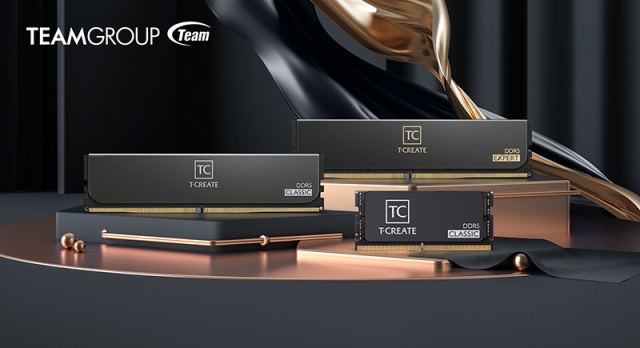
Can I Use Laptop Ram in Desktop: Unleash Ultimate Performance!
Yes, you can use laptop RAM in a desktop. Now let’s dive into the details.
When it comes to upgrading your desktop’s memory, you may wonder if using laptop RAM is an option. The good news is that in most cases, you can indeed use laptop RAM in your desktop computer. This flexibility can be advantageous, especially if you have spare or unused laptop RAM lying around.
However, there are a few factors to consider before making the switch. We will explore the compatibility between laptop RAM and desktop computers, potential limitations, and the steps to ensure a successful installation. So, keep reading to find out if using laptop RAM in your desktop is the right choice for you.
Understanding The Compatibility And Benefits
RAM, or Random Access Memory, plays a crucial role in the performance of a computer. Both laptops and desktops require RAM to operate efficiently. However, it’s essential to understand that laptop RAM and desktop RAM differ in terms of specifications and physical size.
Laptop RAM is smaller and designed specifically for laptops, while desktop RAM is larger and meant for desktop computers. Using laptop RAM in a desktop is not recommended due to compatibility issues. Laptop RAM may not fit properly into the desktop motherboard, and even if it does, it may not be compatible with the desktop’s hardware and system requirements.
It is best to use the appropriate type and specification of RAM designed specifically for your desktop for optimal performance and compatibility.

Credit: www.amazon.com
Evaluating The Compatibility
Using laptop RAM in a desktop is possible, but compatibility is crucial. Two key factors to consider are physical and technical compatibility. Physical compatibility refers to the physical size and shape of the RAM modules. Technical compatibility includes compatibility with the motherboard and its specifications.
Matching RAM types and speeds are important to ensure optimal performance. Using laptop RAM in a desktop may cause potential issues, such as compatibility conflicts and reduced functionality. It’s essential to research and consult the motherboard’s manual or manufacturer to determine if laptop RAM is suitable for your desktop.
Overall, proper evaluation of compatibility is vital before attempting to use laptop RAM in a desktop.
Unleashing Ultimate Performance
Using laptop RAM in a desktop can unlock ultimate performance, thanks to its advantages. Firstly, it offers cost-effectiveness, as laptop RAM modules are often more affordable than their desktop counterparts. Secondly, accessibility and availability are improved, as laptop RAM is easily found and compatible with most desktop systems.
Lastly, by utilizing laptop RAM, you can optimize your desktop’s performance for specific tasks. Whether it is gaming, video editing, or graphic design, laptop RAM can enhance your computer’s capabilities. So, don’t hesitate to explore the benefits of using laptop RAM in your desktop setup.
Upgrade your system and unleash its true potential. Experience improved speed and efficiency without breaking the bank.
Important Considerations And Precautions
Using laptop RAM in a desktop comes with potential risks and limitations. Incompatibility issues may arise due to different form factors. It can also affect the warranty of your desktop components. Overclocking and heat management might become a concern. To ensure seamless integration and performance, follow these steps: check the compatibility of the RAM with your desktop’s motherboard, ensure that the RAM meets your desktop’s requirements, consult the manufacturer’s guidelines, and consider professional assistance if needed.
Precautionary measures will help minimize any possible adverse effects when using laptop RAM in a desktop.
Frequently Asked Questions For Can I Use Laptop Ram In Desktop
Are Desktop And Laptop Ram Interchangeable?
Yes, desktop and laptop RAM are interchangeable as long as they have the same specifications.
Can I Use Any Type Of Ram In My Pc?
No, you cannot use any type of RAM in your PC. The compatibility depends on the motherboard.
Can I Use Laptop Ssd In Desktop?
Yes, you can use a laptop SSD in a desktop computer without any compatibility issues.
Can Laptop Ram Be Used In A Desktop?
Yes, laptop RAM can be used in a desktop, but only if the RAM modules are compatible with the desktop’s motherboard. Laptop RAM uses a smaller form factor called SODIMM, while desktop RAM uses a larger form factor called DIMM.
So, make sure to check the compatibility of the RAM modules with your desktop’s motherboard before installing them.
Conclusion
Using laptop RAM in desktops can be a viable option for certain circumstances. While it may not always be compatible due to physical differences, there are cases where it can work with the help of adapters or using the same RAM type.
However, it is important to keep in mind that using laptop RAM in desktops may not provide the same level of performance as using dedicated desktop RAM. Before making any decisions, it is recommended to check the specifications of your desktop and laptop to ensure compatibility.
It is also advisable to consult with a professional or seek assistance from the manufacturer. Overall, the decision to use laptop RAM in a desktop boils down to personal preference, budget constraints, and the specific requirements of your system. While it can be a cost-saving measure, it is important to weigh the potential benefits against any potential drawbacks.